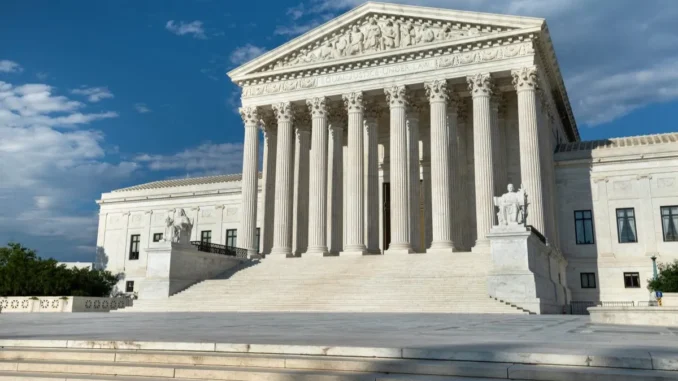
The U.S. Supreme Court has denied HomeServices of America’s request to hear its argument that the Eighth Circuit Court of Appeals wrongly rejected arbitration agreements with unnamed class members in the Sitzer/Burnett commission lawsuit, according to a court docket entry on Monday.
In a writ of certiorari filed in early February, HomeServices told the Supreme Court that each of its client contracts state that the “signatories can arbitrate any claim or dispute arising out of the contract.” The plaintiffs who signed the contract, however, sued a non-signatory parent company of the signatory brokerages, which “asserted liability based on the non-signatory’s relationship with its subsidiary.” Due to this, HomeServices said it sought to compel arbitration to determine whether the plaintiffs’ claims are able to be settled.
“The Federal Arbitration Act (“FAA”) requires courts to enforce arbitration agreements ‘according to their terms,’ including agreements that require arbitration of ‘gateway questions’ concerning whether a particular claim must be arbitrated,” the filing states.
HomeServices claims that the Eighth Circuit violated this principle “when it decided for itself whether the plaintiffs’ antitrust claims against HomeServices are subject to arbitration. There is no dispute that the plaintiffs agreed to contracts that include mandatory arbitration provisions. Those contracts require the arbitrator, not the court, to resolve disputes about the ‘interpretation’ and ‘enforcement’ of the contracts.
“But rather than enforce those provisions by ordering arbitration, the Eighth Circuit interpreted the terms of the contracts under state law and concluded that the contracts did not require the plaintiffs to arbitrate claims against HomeServices, the indirect parent of the real-estate brokerages that signed arbitration agreements with the plaintiffs.”
Under Missouri state law, HomeServices of America would have needed to have been named as a third-party beneficiary on the client contracts. Since it was not, HomeServices is unable to compel arbitration, the brokerage argued. HomeServices first filed its motion to compel arbitration in March 2020, less than a year after the lawsuit was originally filed.
HomeServices called the Eighth Circuit’s approach “misguided,“ arguing in its filing that the decision should be reversed. The Supreme Court, however, did not agree. The runner entered into the court docket did not note why the Supreme Court denied this petition.
In an emailed statement, Chris Kelly, an executive vice president at HomeServices, said the firm will continue to explore its options to further litigate the case.
“While we firmly believed the arbitration issue we raised through our petition to the Supreme Court was an important matter, given the conflicting interpretation of the Federal Arbitration Act at the circuit court level, we certainly understood the odds and the very limited number of cases the Supreme Court selects each session,“ Kelly said.
“This represented just one of many paths we believed were important to pursue, and we continue to aggressively pursue a resolution of our involvement in the underlying litigation.“
In late October 2023, a Missouri jury found HomeServices of America, as well as Keller Williams and the National Association of Realtors, liable for colluding to artificially inflate real estate agent commissions. Keller Williams and NAR have since settled the suit, joining RE/MAX and Anywhere, which were also named as defendants but settled prior to the start of the trial.
Earlier this week, Judge Stephen Bough, who is overseeing the Sitzer/Burnett suit, denied the plaintiffs‘ motion for entry of judgment against HomeServices of America.



